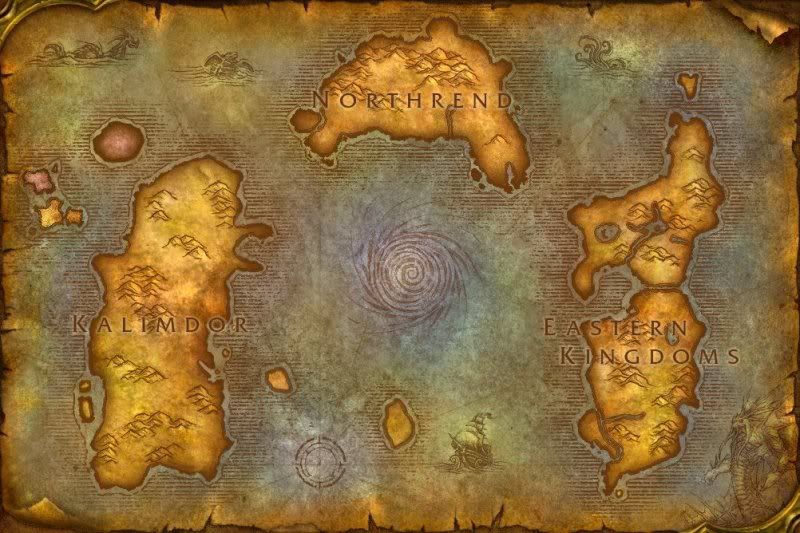
The Nentir Vale seems a decent starting area for most Dungeons & Dragons adventures in 4th edition. But it’s only a smaller part of a larger world, most of which is undocumented. In order to expand beyond the Vale, a little groundwork needs to be laid. As I start considering where my current party will go from here, and where other players may start their own adventures (this weekend, for instance?), there are a few things that need to be taken into account.
Climate
The Nentir Vale is a northern portion of whatever continent it’s on, but it’s not covered in snow like the northern content of Northrend in Azeroth. Reaches beyond the Vale are colder and more stereotypically “northern”, while south of the Vale are lands that are more temperate. When mapping out the rest of the shore, if not the world, it will behoove a DM to keep in mind that the Nentir Vale is similar, at least in part, to a land like Canada or the Ukraine. It should fit into any maps accordingly.
Culture
Evidence exists of some sort of kingdom or empire south of the Vale. Some history is given in the material available to DMs of 4th edition, but that can of course be mined or even ignored if it benefits the story and campaign. To me, having a more structured if somewhat oppressive authority to the south while the north remains wild and untamed will not only lend the world a necessary dimension of diversity, but will also lead to…
Conflict
There are only so many delves a party can enter without being connected to a larger world. As much fun as it is to enter a forgotten tomb or horrors or track a dragon down to their lair, games like Dragon Age and Fable lend weight and memorability to their stories by pulling the player into a large world outside themselves, one with politics, history and the threat of war. In order to engender this atmosphere in a D&D campaign, work must be done to establish the background, relationships and points of contention between the extant powers that be. The players can choose one side or another to support, or they can upset both sides to carve their own place in the world.
A good DM remembers that the players are the stars. When it comes to decisions outside of mechanics, they should be allowed to make those decisions even if the consequences are negative. Failing to roll the right number to hit should be the extent of out-and-out “punishments” the DM hands down. Maybe slaying the potentate of a land will have a different outcome than the players intend, but it isn’t the place of the DM to talk them out of it because of what it’d do to their story. Instead, such an occurrence should be seen as an opportunity to allow growth in the world, exploration of the player’s characters and the basis for new adventures.
With the right foundations, a new world can be built any number of ways.

